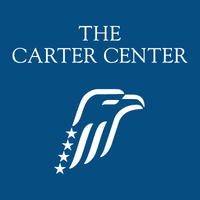The Carter Center has congratulated the Nigerian Federal Ministry of Health today for stopping river blindness transmission in four of the country’s 36 states, protecting 18.9 million people from the second-leading infectious cause of blindness.
The largest stop-treatment decision in the history of the global river blindness campaign — was announced today in Abuja, Nigeria’s capital, following World Neglected Tropical Diseases Day Jan. 30.
The Director, the Carter Center’s River Blindness Elimination Program, Dr. Gregory Noland
stated that the magnitude of Nigeria’s latest ‘stop treatment decision’ for river blindness is incredible.
Noland explained that the feat is the largest in the history of the global campaign for perspective, prior to this decision, the 16-year cumulative stop-treatment total in 12 Carter Center-assisted countries was about 12.3 million this more than doubles that figure.
Nigeria’s National Onchocerciasis Elimination Committee determined and informed Federal Minister of Health Dr. Osagie Ehanire that four Carter Center-assisted states (Abia, Anambra, Enugu, and Imo) have interrupted onchocerciasis transmission and met World Health Organization criteria to halt Mectizan treatment for river blindness.
The minister’s decision, recommended by NOEC, covers a record of 18.9 million people with about 5 million people in these areas still require Mectizan treatments combined with albendazole for lymphatic filariasis, another parasitic disease; the program believes these areas will soon interrupt transmission of that disease too, enabling the start of post-treatment surveillance for both diseases.
Carter Center-supported laboratories contributed to the historic decision, processing 52,187 black flies and 12,718 blood samples to demonstrate transmission interruption.
The announcement follows last year’s news that Carter Center-assisted Plateau and Nasarawa states were the first in Nigeria to complete post-treatment surveillance for river blindness and achieve transmission elimination status.
For 30 years, we have worked with Nigerians at all levels to eliminate this debilitating disease,” said Dr. Emmanuel Miri, Carter Center country representative and one of the original team members to help launch the country’s national program in the early 1990s.
“Together, we’re committed to the goal of nationwide river blindness elimination.”
As a pioneer in river blindness elimination, The Carter Center assisted the world’s first four countries — Colombia (2013), Ecuador (2014), Mexico (2015), and Guatemala (2016) — to eliminate transmission of the disease through community-directed Mectizan treatments and health education, securing official WHO recognition.
Since 1995, the Center has assisted a dozen countries, including Nigeria, in the cumulative delivery of more than 500 million Mectizan treatments for onchocerciasis. Currently, more than 31 million people no longer require treatment in Carter Center-assisted areas in Latin America and Africa.
Together with partners, The Carter Center is committed to river blindness elimination on World NTD Day and every day. NTDs are a group of 20 diseases — six of which The Carter Center addresses — that are preventable and treatable, but still affect 1.7 billion people around the world. They usually affect people who don’t have access to the basics — clean water, nutritious food, and sanitation. NTDs cost developing countries billions of dollars a year in lost productivity.
Since 1988, The Carter Center and Nigeria’s Ministry of Health have collaborated to eliminate NTDs throughout the country, including WHO certification of the nationwide elimination of Guinea worm disease (2013), elimination of lymphatic filariasis and river blindness transmission in Plateau and Nasarawa states (2017, 2021 respectively) and the elimination of trachoma as a public health problem (2018) in the same two states.



